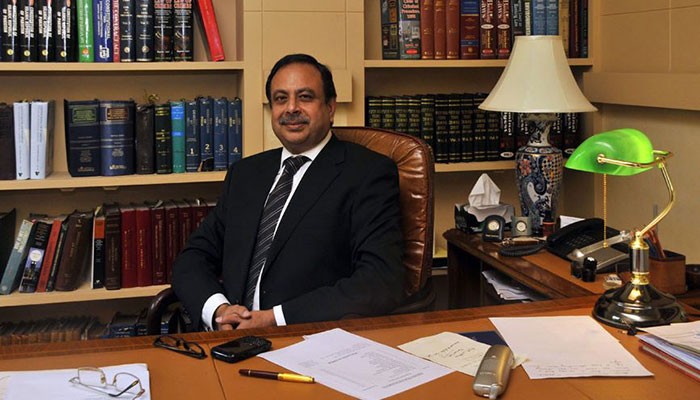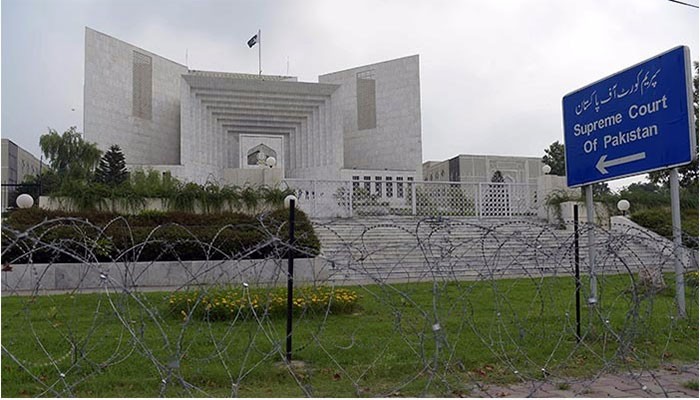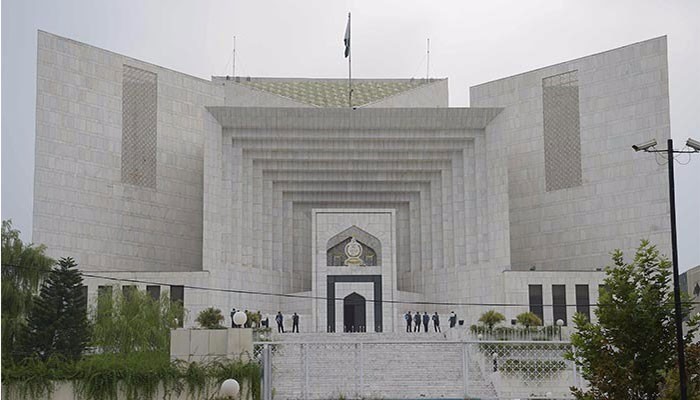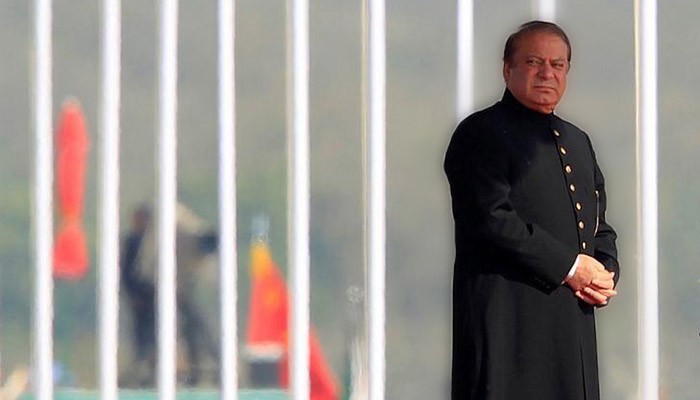SC reserves decision on Article 62 disqualification duration case
February 14, 2018
ISLAMABAD: The Supreme Court reserved on Wednesday its decision in the case to determine the time period that elected lawmakers will remain disqualified for.
A five-member larger bench, headed by Chief Justice of Pakistan Justice Mian Saqib Nisar, was hearing several petitions to determine the time-period a lawmaker would remain disqualified for after being de-seated in violation of Article 62(1)(f) and other election laws.
Appearing in court today, Attorney General Ashtar Ausaf Ali argued the that in some instances, the stigma of disqualification of lawmakers continues even after their death. He said further that the declaration of disqualification by the court cannot end on its own, adding that Parliament should be left to decide the duration of a lawmaker's disqualification.
Justice Ijazul Ahsan remarked that the relevant forum and court can remove the stain of disqualification, adding that until then, the disqualification will continue.
Moreover, the court observed that the disqualification will continue for as long as the declaration [signed by electoral candidates declaring them honest] holds, adding that the 18th Amendment, passed in 2010, did not determine a time period for disqualification.
In his remarks, the chief justice observed that if a time period for disqualification has not been established, it will last for life.
Hearing the case on Monday, the chief justice had expressed displeasure at the AG's absence, who had been summoned to appear, and fined him Rs20,000.
At an earlier hearing on February 8, Chief Justice Nisar had acknowledged the ambiguity of Article 62(1)(f) of the Constitution.
During the hearing, noted lawyer and human rights advocate, Asma Jahangir, who passed away on February 11, had appeared before the bench and represented Pakistan Tehreek-Insaf's disqualified lawmaker Rai Hasan Nawaz.
Asma had pleaded that Articles 62 and 63 are joined and should be considered one.
The chief justice then observed how an ambiguous article can be defined, if one considers Article 62(1)(f) unclear. Later, the chief justice accepted that the specific clause is ambiguous, and remarked that "it will be a difficult task to define it".
Asma also argued before the bench that the maximum period of disqualification should be five years according to Article 62.
Chief Justice Nisar remarked that it is possible they decide minimum and maximum sentences, adding that in such an instance the court would decide the sentence case-to-case.
At an earlier hearing, Justice Sheikh Azmat Saeed had observed that when the court disqualifies a person under Article 62, it is a declaration by the court, not a sentence.
'Sadiq and Ameen'
Article 62(1)(f) reads: "A person shall not be qualified to be elected or chosen as a member of Majlis-e-Shoora (Parliament) unless-...he is sagacious, righteous and non-profligate, honest and ameen, there being no declaration to the contrary by a court of law."
The judgment would have consequences for disqualified lawmakers, especially Pakistan Tehreek-e-Insaf leader Jahangir Tareen and former prime minister Nawaz Sharif.
On December 15, last year, the Supreme Court had disqualified Tareen for failing to declare an offshore company and a foreign property in his election nomination papers.
Similarly, then-prime minister Nawaz was disqualified by thge Supreme Court on July 28, 2017 for concealing in his nomination papers the receivable income from his son's company in UAE.
Disqualification should last till next election: Nawaz
On Feb 6, Nawaz had informed the court that he would not be partaking in the proceedings after the bench had issued him notices.
Nawaz maintained that in his understanding "to take part in election process is a fundamental right and therefore no perpetual disqualification can be imposed on someone by interpreting Article 62 of the Constitution of Islamic Republic of Pakistan."
He further added that "a time limit could have been provided by the Parliament but since it has not been done so, the issue of qualification under Article 62 is confined only to the election in question."
"I being a strong proponent of democracy believe that it is the right of people of Pakistan to participate in the process of election and to reject or elect candidate(s) of their choice. They enjoy an inalienable right to elect their representatives through a true democratic process and not be given the list of selective people through the process of elimination."
















